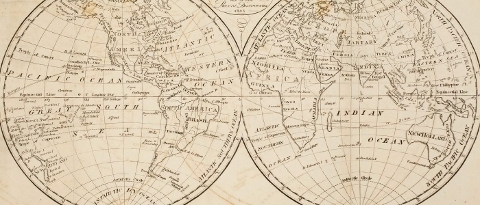Despite their early success in the Americas, Jewish people continued to live as outsiders, religiously condemned by Christians, and became the target of racial tropes that persist even today. Their religious practice, unique accents, and surnames led to scapegoating based on age-old stereotypes that found their origins in Europe long ago. During the Civil War conflict, anti-Jewish intolerance was rampant among the Union and the Confederacy, with accusations that Jewish people were helping the opposing side of the conflict as well as selling military supplies at inflated prices to make a profit.
American anti-Semitism post-World War I inspired quotas restricting Jewish students from attending institutions of higher learning, despite their qualifications, and also led to their exclusion from certain universities, neighborhoods, hotels, and clubs. Harvard, Yale, Princeton, and other institutions of higher learning limited the enrollment of Jews to discourage the rise of anti-Semitism. Prominent figures also came forward. Henry Ford, known for his anti-Semitism, published a newspaper in the 1920s in Dearborn, Michigan called
The Dearborn that was riddled with anti-Semitic tropes and propaganda. He believed Jewish people sought to control the world by commerce and exchange, beliefs which were praised in Hitler’s treatise,
Mein Kampf.
In the 1930s the attacks increased, as neo-Nazis were allowed to openly speak hatred over radio airwaves, justifying and inspiring physical assaults against Jewish citizens both in the United States and abroad. American followers of Hitler, or Nazi sympathizers, were inspired to paint swastikas on Jewish-owned businesses and terrorized them as they rallied in the streets. During Hitler’s reign, America also maintained highly restrictive immigration laws, turning away hundreds of immigrants daily. In 1939, for example, the USS St. Louis was turned away from a Miami port, ultimately returning 900 refugees to Nazi Germany, where one-third would be murdered in the Holocaust.
Today, complex social change, including anxiety about globalization, economic inequality, the COVID-19 pandemic, and changing demographics, has inspired a resurgence of bigotry, scapegoating, and mistrust. For some, including prominent conservative leaders surrounding former President Donald Trump, the Jewish community once again became the “globalists” responsible for complex social change. As Trump rallied behind the slogan “America First,” echoing prominent anti-Semites during World War II, his words found power in the alt-right and hate groups like the Ku Klux Klan, QAnon, and the Proud Boys. He stood mute as prominent journalists were attacked for their Jewishness, trafficking stereotypes in the media and among his own supporters, and condoned violence in Charlottesville as mobs of white men marched chanting “You will not replace us.”
Gale Primary Sources allow you to discover original historical documents, meticulously cross-referenced to bring facts into focus. Click to explore.

www.gale.com

 forward.com
forward.com




